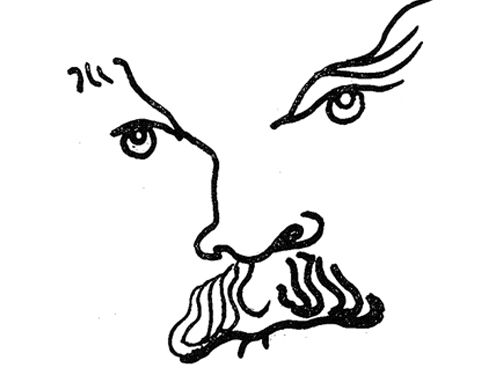
Orson Welles est une manière de géant au regard enfantin, un arbre bourré d’oiseaux et d’ombre, un chien qui a cassé sa chaîne et se couche dans les plates-bandes, un paresseux actif, un fou sage, une solitude entourée de monde, un étudiant qui dort en classe, un stratège qui fait semblant d’être ivre quand il veut qu’on lui foute la paix.